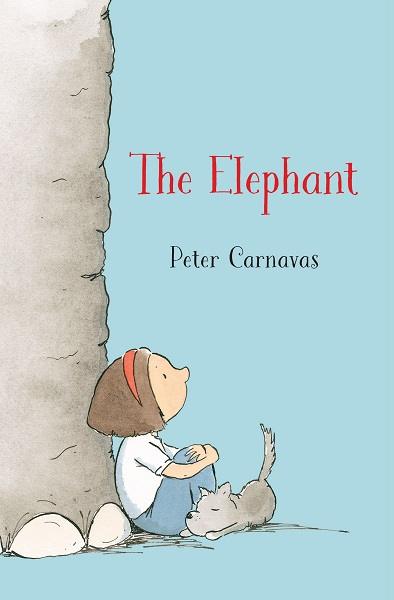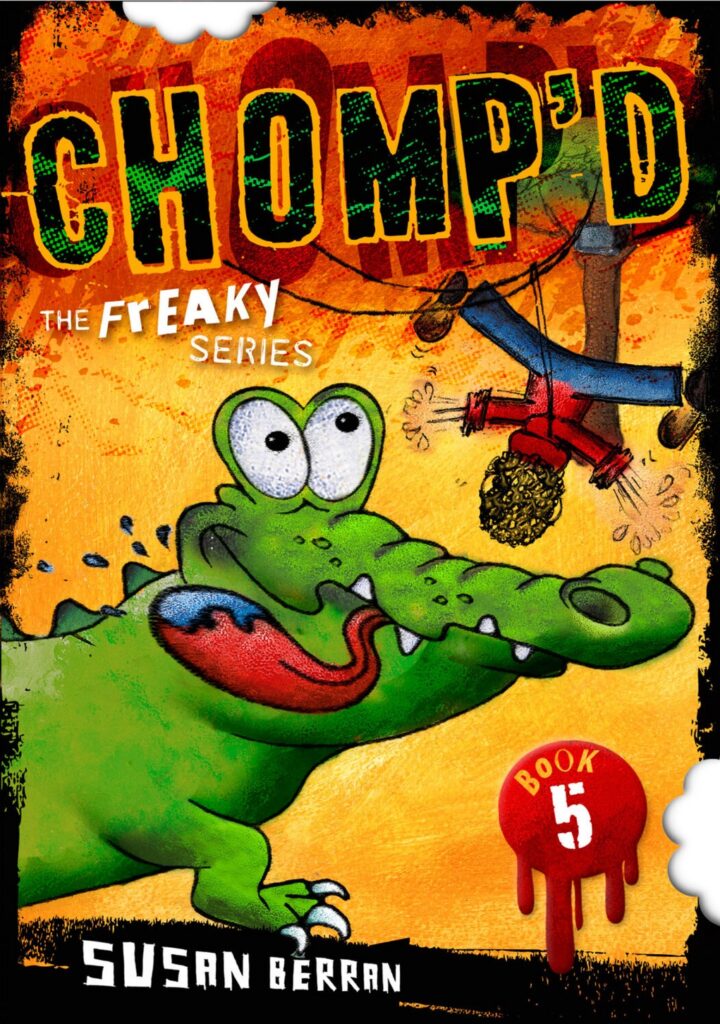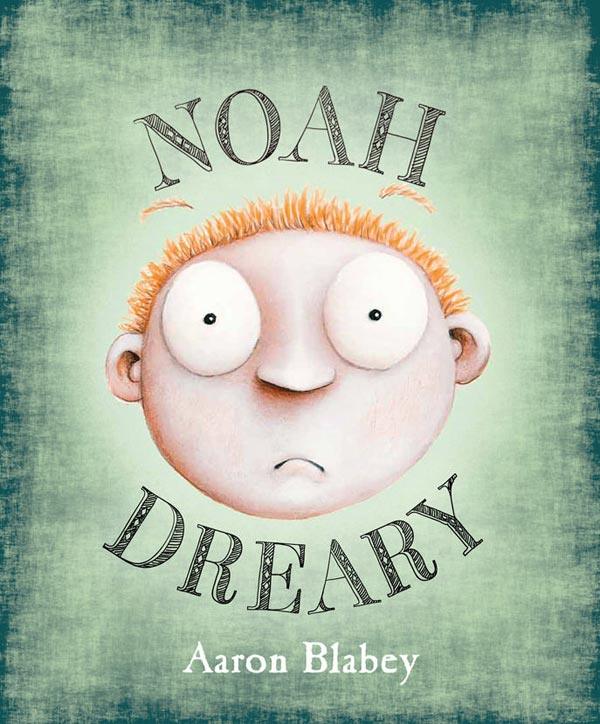Peter Carnavas, The Elephant, University of Queensland Press, 3 July 2017, 180pp., $14.95 (pbk), ISBN: 9780702259616
When I received this book to review a packet of tissues accompanied it, a promise of the tears to come. And boy did they come…
Olive is a little girl who lives with her father and grandfather. Her mother died a year after she was born. Olive gazes at a photograph of her parents where her mother wears a white hat and her father stares at the camera with a smile so huge he has ‘squinty’ eyes. Now her father is followed by a giant grey elephant that takes up so much space in their lives that there is no room for squinty-eyed smiles.
This gently painful story is an ode to the complexity of human relationships, grandfather to granddaughter, friend to friend, father to daughter. Olive’s grandfather takes on the primary caregiver role, he makes her lunch, takes her to and from school, talks about her day, sings her songs and helps her interpret the world around her. They go on wonderful adventures after school where the world opens up for Olive and she sees alternatives to her life at home, a life where her father’s elephant allows them no joy.
The dialogue between Olive and her Grandfather is never convoluted with too many words, adult to child, fumbling to explain the more complex issues life has thrust in Olive’s path. It never condescends to lies or misconceptions to protect Olive, instead short moments of silence that allow Olive the space to think and unravel the stranger things in life, are sprinkled throughout their interactions. In this way a deep level of tenderness and trust is reached until Olive is finally able to verbalise her fears, confusion and sadness. This is reciprocated by her grandfather and strengthens the sense of love and protectiveness between these two characters. So much so that when Olive notices a slow and cumbersome tortoise following her grandfather around, she is quick to come up with a plan that interweaves all the special moments she shared with her grandfather to be rid of that tortoise once and for all.
Author, Carnavas doesn’t stop there in his vivid construction of character relationships. His portrayal of Olive’s friendship with Arthur is truly beautiful. Olive confides in her best friend, Arthur… she can see an elephant following her father around. Without judgment or ridicule Arthur proceeds to find out as much about elephants for Olive to help her get rid of the nuisance beast. This relationship adds a touch of sweet innocence and emphasises the brilliance of Carnavas at capturing the perspective of children, their resilience, the simple solutions they find to complex problems and their ability to love without judgment.
Then there is Olive’s relationship with her father. The elephant, a very apt metaphor for depression, creates the largest and heaviest of barriers between father and daughter. Feelings of despair, loneliness and disappointment litter Olive’s experiences and memories of her father. She knows he is terribly sad and longs to engage him in her world. She also feels unloved and invisible, even with her grandfather and her pet dog to keep her company. As Olive is let down time and again I feared Carnavas would opt for an easy resolution to the very complex issue of depression, a happy ending for the sake of it. Once again I was not disappointed. While the reader is afforded a smile at the end of the book, a rather big one with the final chapter entitled Perfect, the fluidity of depression, its ups and downs is so masterfully characterised throughout the story that it feels right for Olive to have this perfect moment in time with her father. And if the elephant were to rear its ugly trunk again they could face it together, along with Olive’s granddad and her best friend, Arthur.
This story is beautifully written and deals sensitively with the topic of depression and how it affects children. It is a must read for children six and up and for the adults in their lives.
P.S Be warned… there is a twist at the end of this story that requires a box of tissues to be in reach!
Teachers’ Notes can be found on the University of Queensland Press website.
Reviewed by Katie Mineeff






